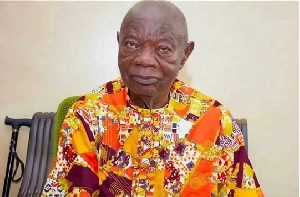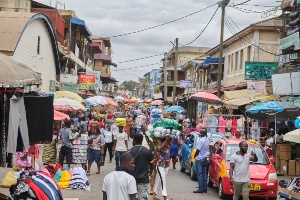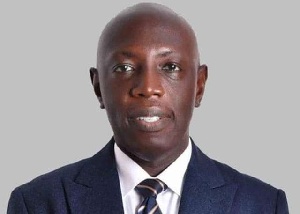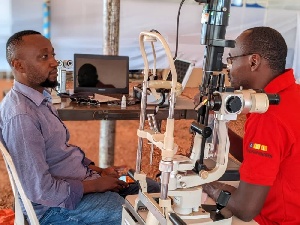- Home - News
- Elections 2024
- News Archive
- Crime & Punishment
- Politics
- Regional
- Editorial
- Health
- Ghanaians Abroad
- Tabloid
- Africa
- Religion
- Photo Archives
- Press Release
General News of Wednesday, 23 April 2025
Source: www.ghanawebbers.com
Ghana: World Bank-backed projects drive crippling debt and fossil fuel dependency
A new report from SOMO and ActionAid Ghana reveals troubling findings. It shows that World Bank-backed projects prioritize corporate profits over Ghana’s public funds.
The World Bank Group must be held accountable for its energy policies in Ghana. These policies have led to crippling debt, energy insecurity, and fossil fuel dependency.
A Rigged Energy System That Benefits Corporations
The World Bank has burdened Ghana with unaffordable obligations. It provided controversial loans and guarantees that protect foreign investors. As a result, Ghana pays for gas it cannot use and excess electricity it does not need. Meanwhile, the country struggles to provide affordable energy for its citizens.
Joseph Wilde-Ramsing, acting Executive Director of SOMO, states, “The World Bank claims to champion development. In Ghana, it has fueled debt while ensuring corporate profits come before public need.” Ghanaians face high electricity prices while foreign oil companies profit.
West African Gas Pipeline: A Broken Promise
The West African Gas Pipeline was supposed to supply affordable gas from Nigeria. However, since its launch in 2010, gas deliveries have been inconsistent. This inconsistency forces Ghana to import costly liquid fuels instead. Meanwhile, companies like Shell and Chevron benefit from financial guarantees backed by the World Bank.
Jubilee Project: Billions Spent with Ongoing Power Shortages
The Jubilee project was led by Tullow Oil and Kosmos Energy. It was expected to ease Ghana’s power crisis but did not cover gas usage. The offshore facility failed to function properly, causing years of gas flaring. Consequently, Ghana borrowed heavily from China for onshore infrastructure development—costing at least $1 billion in additional fuel imports.
Foreign investors received hundreds of millions in loans and guarantees from the World Bank during this time.
Sankofa Gas Deal: A Risky Agreement Disguised as a Solution
With over $1.2 billion in commitments from the World Bank, the Sankofa project was promoted as a breakthrough for energy security. However, its take-or-pay contract forced Ghana to pay $600 million annually for unused gas. Infrastructure delays meant that $50 million worth of gas per month went unused for over a year.
World Bank guarantees helped European oil companies recover missed payments amounting to $360 million—turning these into burdensome loans for Ghana.
Independent Power Producers: Excess Power Leads to Excess Costs
From 2012 to 2016, Ghana rushed into contracts with independent power producers due to shortages. Many deals were signed without public scrutiny and included rigid clauses. By 2022, Ghana had 850MW of surplus thermal power capacity but remained locked into expensive contracts exceeding actual demand.
This situation resulted in an estimated revenue shortfall of $1.3 billion in 2023.
The World Bank: Aiding Development or Profiting from Debt?
Ghana's debt restructuring under the G20 Common Framework involves postponing payments until 2040 while some governments invested in fossil projects there. Additionally, multilateral banks hold debts exempt from this process—including $4.75 billion owed to the World Bank.
In June 2024, the World Bank issued a new loan of $250 million aimed at reducing transmission losses and improving planning systems. However, this does not address structural problems like renegotiating expensive power charges or excessive capacity agreements with independent producers encouraged by the bank.
Without tackling these issues, Ghana risks remaining trapped in fossil energy debt—further threatening households already facing doubled electricity tariffs after an IMF bailout in 2023.
John Nkaw, Country Director of ActionAid Ghana says: “Ghana has been compelled into unaffordable energy agreements.” He adds that these contracts guarantee profits for oil giants while ordinary Ghanaians endure high prices without promised benefits.
A Call for Accountability and Fair Energy Deals
Ghana's experience highlights the need for transparency and fairness in global energy investments. All contracts shifting financial risk onto the country should be reassessed urgently.
Development finance institutions like the World Bank must acknowledge their role in this crisis too. An independent assessment of fossil-related debt affecting Ghana’s finances is necessary as part of ongoing restructuring efforts led by the IMF.
Joseph Wilde-Ramsing concludes: “Instead of guiding Ghana towards sustainable solutions, the World Bank has locked it into disastrous contracts benefiting corporations at people's expense.”
Entertainment










